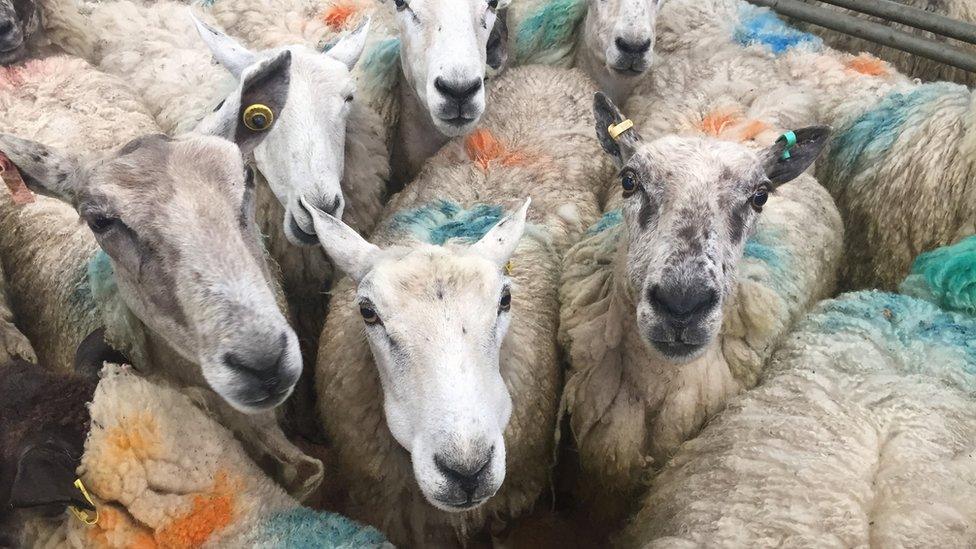Brexit: Farmers' Union of Wales and NFU want more time
- Published
- comments
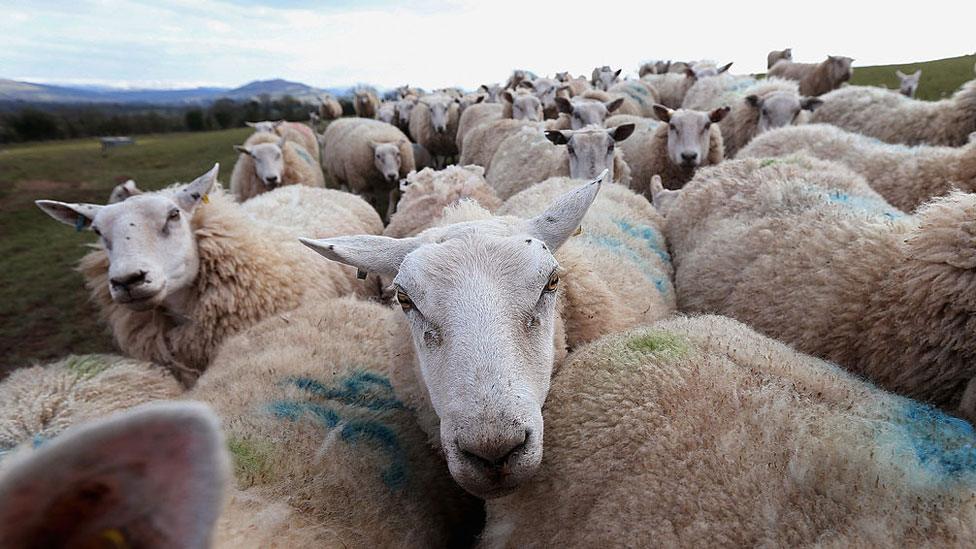
FUW has reiterated its call for Parliament to reject a no-deal Brexit "under all circumstances"
Farming unions in Wales have called for more time until Brexit to protect the industry.
The Farmers' Union of Wales (FUW) urged MPs to reject a no-deal Brexit under all circumstances, while NFU said an extension to leaving the EU needed to be "as long as necessary".
There are concerns a no-deal Brexit would have a "devastating impact" on Wales' lamb exports.
Concerns have also been expressed within the steel and car industries.
Meanwhile, First Minister Mark Drakeford said what was announced, external under the new tariff regime demonstrated the "catastrophic effect" a no-deal Brexit would have on the Welsh economy.
"It exposes us immediately to all sorts of headwinds in terms of international trade that will make the task of securing jobs here in Wales in manufacturing, in agriculture, even more difficult," he said.
Beef, lamb, pork and some dairy imports will face tariffs - making those more expensive for consumers - to protect UK farmers.
But the concern is over exports of Welsh farm produce - much of which is to the European Union.
Glyn Roberts, FUW president said EU tariffs would have a devastating impact on many exporters: "The combination of tariffs and a no-deal Brexit would also sever thousands of established supply chains causing unprecedented disruption."
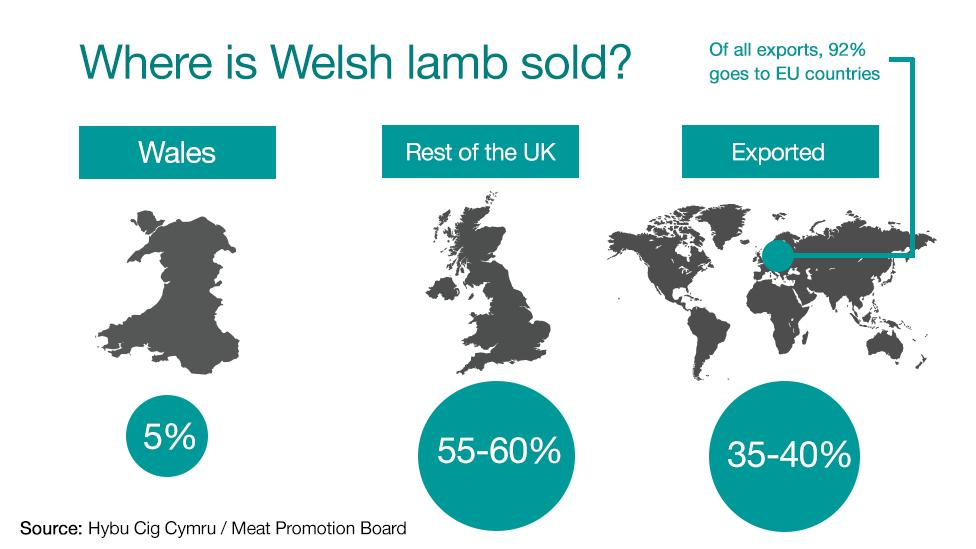
Most Welsh lamb is sold to the rest of the UK
John Davies, president of NFU Cymru, said the prospect of tariffs on exports of lamb - 95% of this trade is with the EU - could lead to a 30% drop in income for farmers.
"Farming is a long-term business, lambs are being targeted for the Easter market a few weeks away and deals need to be done," he said. "So it's incredibly difficult as a business to plan and go forward."
He said there needed to be an extension "as long as necessary" to sort the issues out.
The National Sheep Association said it remained concerned no deal would result in "far higher volumes of lamb" on our domestic market than we have historically catered for.
Meanwhile, Ford - which has an engine plant at Bridgend already under pressure - also urged the UK to avoid a no-deal Brexit.
"These tariffs would deal a devastating blow to much of the complex and integrated automotive industry," said a spokesman.
Steel industry sources said with EU measures to protect the industry in place, they hoped for minimal impact, but workers still need convincing.
Roy Rickhuss, general secretary of steelworkers' union Community, said: "The government's plan for zero tariffs would be a fresh betrayal of British steelworkers, putting further pressure on their jobs at a difficult time for the industry."
Mr Drakeford added that the Welsh steel industry would be exposed to dumping.
Bartlett Engineering in Port Talbot, which is part of the Tata supply chain with 40 workers, is worried about imports.
"It's very worrying - we should be using steel made in Britain, we've already had products from China coming in -we don't know where we are," said Desnie Hill, financial manager.
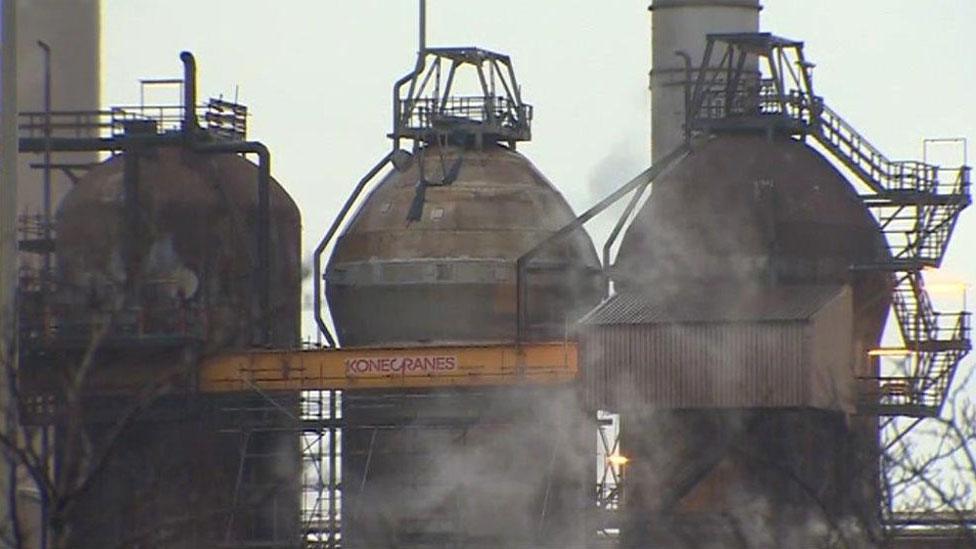
Tariffs will apply to 13% of goods imported into the UK
Analysis - Brian Meechan, BBC Wales business correspondent
No deal would see the UK implement 0% tariffs on most goods coming from anywhere in the world.
However, the UK government said it would keep in place the 43 special EU measures that prevent the dumping of cheap steel from China and Russia at artificially low prices.
There will be tariffs on finished cars - making them more expensive - although manufacturers of car parts will keep the 0% level in trading with the EU - which means there will be 0% on those same car parts coming from anywhere else in the world too.
What we don't know is what the EU's reaction will be - under WTO rules, under no-deal, the EU must level the same tariffs on the UK as other countries' products.
That will make goods from Wales more expensive for customers to buy in the EU, which you'd expect to lower demand.
It's highly unlikely the EU will follow the UK in keeping 0% tariffs as it would have to do the same for every country.
There are also concerns about what this will mean for goods coming into Holyhead, the UK's second biggest ferry port.
- Published13 March 2019
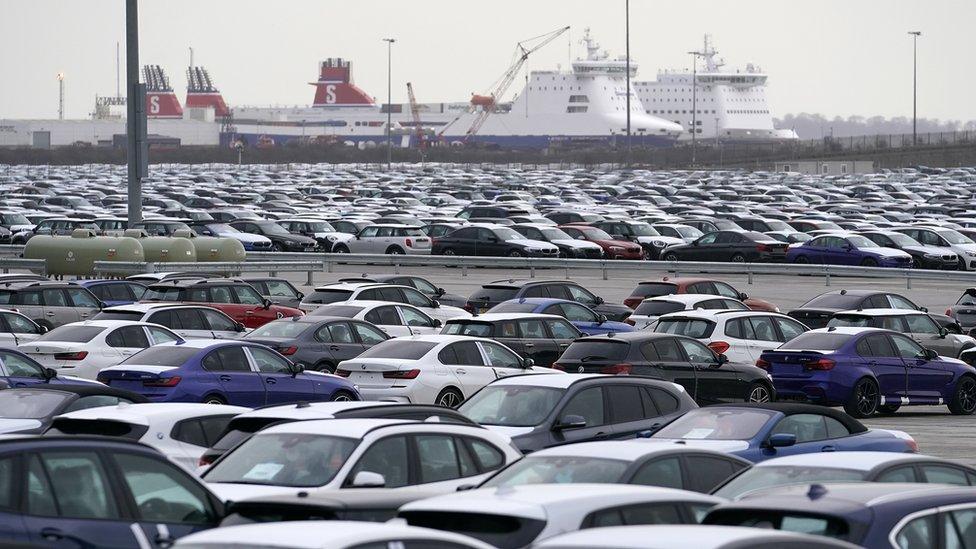
- Published13 March 2019
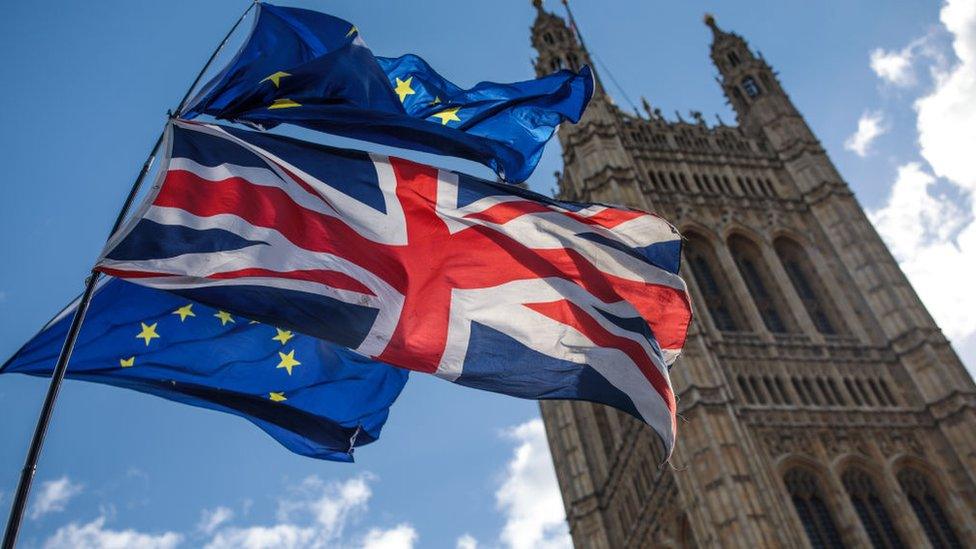
- Published13 March 2019
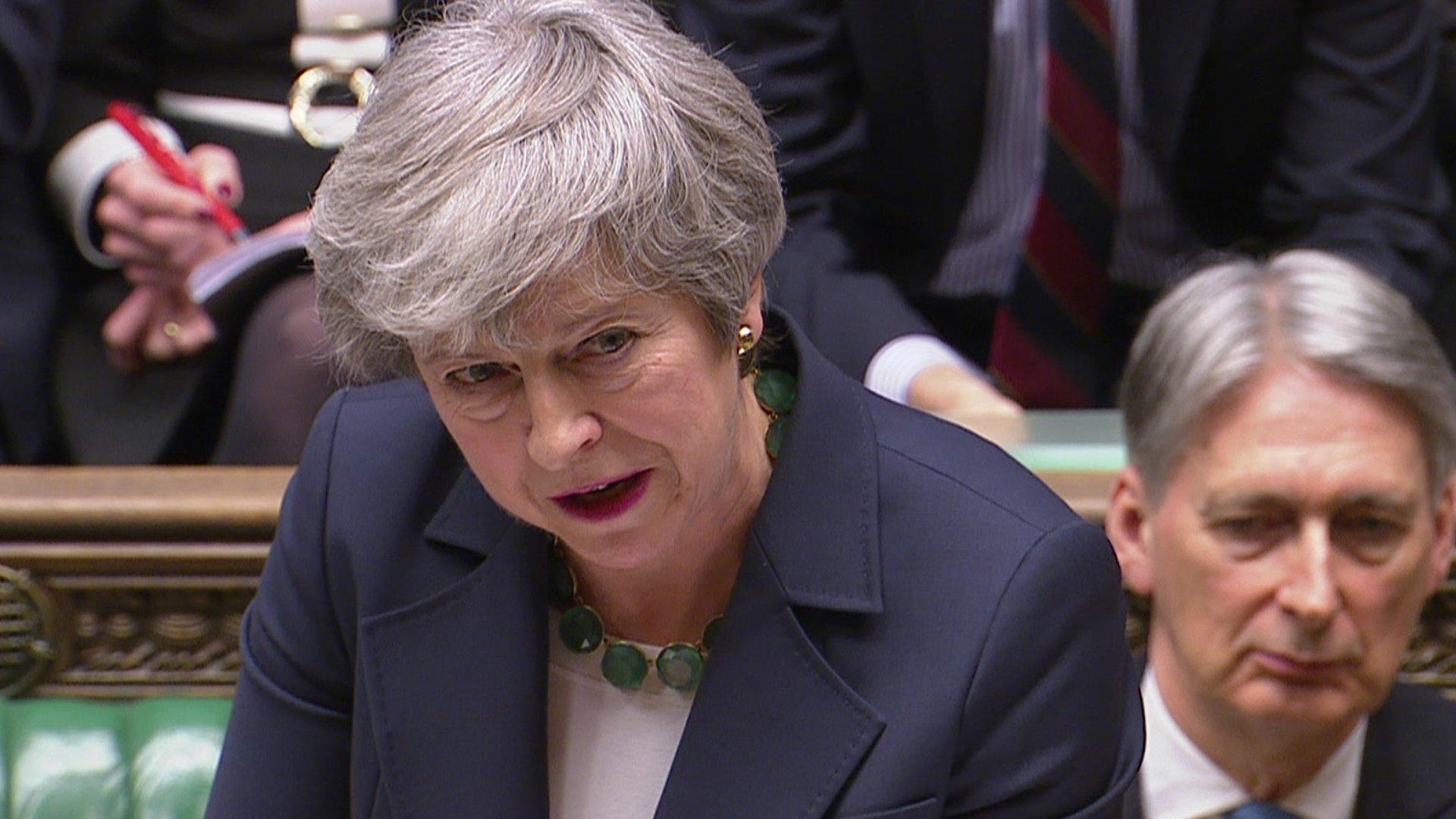
- Published6 June 2018
